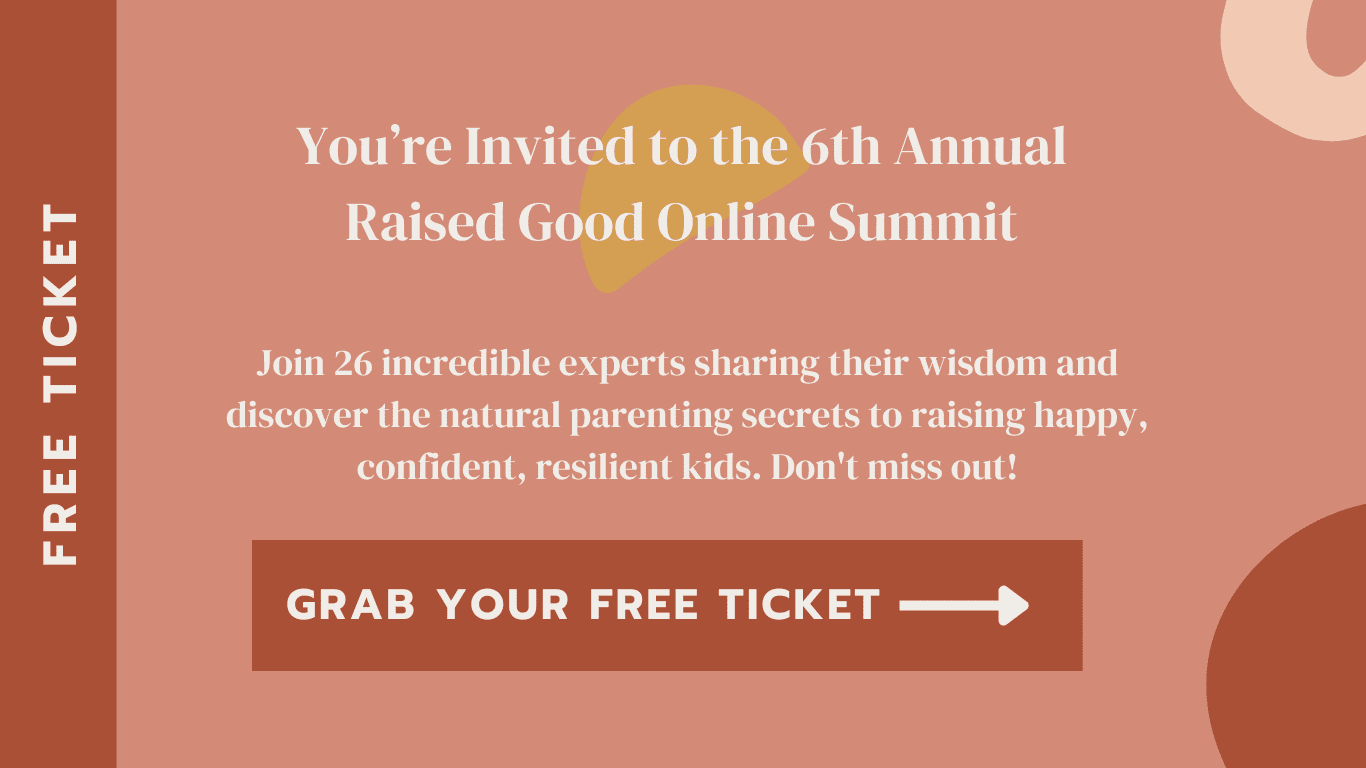She was exhausted. Bone-deep, soul-crushing exhausted.
When her mother-in-law offered to watch her kids, it should have been a lifeline.
But instead, a familiar knot of guilt tightened in her stomach.
“Do you need me to watch the kids so you can go to work?” her mother-in-law asked.
“Yes,” she lied.
So she put on her work clothes, dropped off her children, and then…went home to bed. Gosh, it felt good to rest.
Her secret “self-care” ritual continued for weeks. Each time, though, the lie grew a little heavier, the guilt more suffocating.
This isn’t the plot of a novel or a scene from a movie.
This was the reality for my friend Lael Stone, parenting educator and mother of three, who as a new mother, found herself trapped in a web of exhaustion, guilt, and impossible expectations.
Motherhood shouldn’t feel like a covert operation.
When Lael shared her story with me, I could see myself in her words. I think we all can.
Her story perfectly encapsulates the complex relationship mothers have with self-care, boundaries, and managing their own needs.
It’s a struggle that goes beyond mere time management – it’s deeply rooted in our upbringing, societal expectations, and the invisible imprints left by our own childhood experiences.
As mothers, we often find ourselves caught in a web of conflicting demands.
On one hand, we’re told that self-care is crucial for our wellbeing and that of our families.
On the other, we’re bombarded with messages that glorify selfless motherhood and constant sacrifice.
It’s no wonder we end up feeling guilty for taking time for ourselves or setting boundaries.
It was in moments like these that Lael realized the importance of understanding the connection between self-care, boundaries, and anger—not just for her own sake, but for the well-being of her children. The lesson she learned? When mothers neglect themselves, the consequences ripple through every aspect of their lives.
So, what if the key to being a better parent lies not in endless self-sacrifice, but in understanding and challenging these deeply ingrained beliefs?

Unpacking Our Imprints
Our past shapes our present, but it doesn’t have to define our future.
The concept of ‘imprints’ offers a fascinating lens through which to examine our parenting struggles.
Imprints are the unconscious beliefs and behaviours we’ve inherited from our own upbringing. They shape how we view ourselves as mothers, how we interact with our children, and how we navigate the challenges of parenting.
For instance, many of us grew up in environments where self-care was viewed as selfish or lazy. We watched our mothers constantly put everyone else’s needs before their own, rarely taking time to rest or pursue their own interests. Is it any surprise, then, that we feel guilty when we try to prioritize our own needs?
Similarly, our approach to setting boundaries and expressing anger is often a direct reflection of what we witnessed in our childhood homes.
If boundaries were nonexistent or harshly enforced, we might struggle to find a healthy middle ground with our own children. If anger was suppressed or expressed through aggression, we might find ourselves swinging between these extremes in our own parenting.
Recognizing these imprints is the first step towards change. It allows us to question whether these inherited beliefs truly serve us and our families, or whether they’re holding us back from being the parents we want to be.
Rewriting the Rules of Self-Care
We’ve all heard it before: “You can’t pour from an empty cup.”
And yet, mothers are continually expected to do just that.
We believe we’re being selfless by putting our needs last, but the reality is that neglecting self-care is a ticking time bomb.
“When we are depleted and don’t practice good self-care, being with our kids’ feelings becomes much harder,” says Lael. This depletion manifests in many ways—emotional outbursts, irritability, and frustration. Instead of responding to our children with patience, we react from a place of exhaustion, which often leads to feelings of guilt and shame.
Self-care, however, is more than bubble baths or a quiet cup of tea (though those are nice).
It’s about reclaiming your energy and setting boundaries that protect your well-being.
It’s recognizing that your emotional health is just as important as your child’s. When we prioritize ourselves, we build the emotional resilience necessary to face the daily challenges of motherhood.
This might mean setting aside time each day for activities that rejuvenate us, whether that’s reading a book, going for a walk, or simply sitting in silence for a few minutes. It could involve asking for help when we need it, without feeling guilty or like we’ve failed as mothers. Most importantly, it means giving ourselves permission to prioritize our wellbeing, understanding that this isn’t selfish – it’s necessary.
Your oxygen mask goes on first, and that’s okay.
Boundaries as an Act of Self-Love
Boundaries aren’t walls, they’re bridges to understanding.
And at the heart of self-care lies boundaries—those invisible lines that protect your emotional, mental, and physical health.
Yet, setting boundaries can feel uncomfortable, especially for mothers who are conditioned to give endlessly.
“Setting boundaries is an essential act of self-love,” Lael Stone reminds us. Boundaries aren’t about shutting others out; they’re about honoring your own needs. They allow you to carve out space for yourself without guilt, whether it’s time for a quiet walk, uninterrupted work, or simply saying no to an overwhelming schedule.
Think of boundaries as being like a tree—deeply rooted but flexible. You stand firm in your values and limits, but you allow space for the emotions of those around you.
When your child tests your boundaries (as children naturally do), your strength lies in your ability to hold space for their feelings while maintaining your own limits. You are the calm in their storm, a steady guide who helps them navigate their big emotions without losing yourself in the process.
A ‘no’ to others is often a ‘yes’ to yourself, and that’s okay.

Embracing Anger as a Messenger
Anger isn’t the enemy; it’s a call to action.
Anger is often viewed negatively, especially by mothers.
We’re conditioned to believe that “good mothers” don’t get angry.
But anger is simply a messenger. It may tell us when our boundaries have been crossed, when we’re overwhelmed, or when we need to take a step back and re-evaluate.
As Lael puts it, “Anger is just a messenger, not something to fear. It tells us when our boundaries have been crossed or when there’s hurt that needs to be addressed.” The key isn’t to suppress or ignore anger, but to listen to it.
When anger arises, ask yourself: What boundary has been breached? What do I need in this moment that I’m not getting? Often, anger is a signal that we need to reset, re-center, and reassert our boundaries. And that’s where the connection between anger, boundaries, and self-care starts to become clear.
By caring for yourself, you reduce the likelihood of anger bubbling up. By setting boundaries, you protect your emotional energy. And when anger does arise, you have the tools to address it with compassion rather than letting it take control.
Your anger deserves a voice, not a volcano.
Breaking the Cycle of Burnout
The relationship between self-care, boundaries, and anger isn’t just important—it’s transformative. Mothers often feel they have to choose between taking care of themselves and taking care of their children, but the truth is, you can’t do one without the other.
As Lael Stone so eloquently says, “We are mostly wounded children walking around in adult bodies.” The more we heal ourselves and prioritize our needs, the better equipped we are to parent from a place of empathy and patience, rather than reactivity.
Here are three practical steps to help you break the cycle of burnout:
- Prioritize Your Needs Without Guilt: self-care isn’t selfish—it’s necessary. Whether it’s scheduling time for yourself or simply saying no to extra responsibilities, make sure you’re refilling your cup regularly. Start small and be consistent.
- Set Clear Boundaries: whether it’s with your partner, children, or extended family, boundaries protect your emotional health. Be firm but compassionate when setting them, and remember: it’s okay to say no.
- Reframe Anger as a Tool: instead of suppressing your anger, use it as a tool for self-reflection. What is your anger trying to tell you? Use it as an opportunity to adjust your boundaries and re-prioritize your self-care.
A New Approach to Motherhood
Motherhood doesn’t have to be a cycle of depletion and burnout.
By embracing self-care, setting boundaries, and viewing anger as a messenger, we can create a more peaceful, connected family life.
It’s time to shift the narrative that mothers must sacrifice their well-being for the sake of their families.
When you prioritize your own emotional health, you model self-love and resilience for your children. You show them that taking care of yourself is a vital part of caring for others. And in doing so, you become the calm, steady presence they need.
Want to learn more from Lael Stone?
Want to dive deeper into how self-care, boundaries, and anger can transform your parenting? Join us at the Raised Good Online Summit where Lael will dive deeper into this topic, alongside 27 other parenting experts. Make sure to grab your FREE ticket. The summit starts September 12th.


Comments